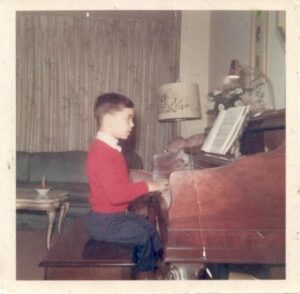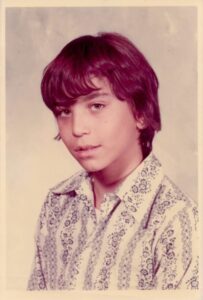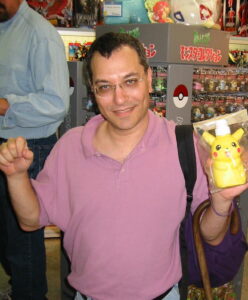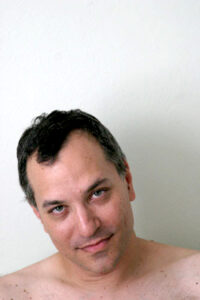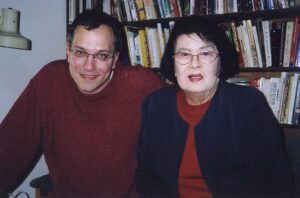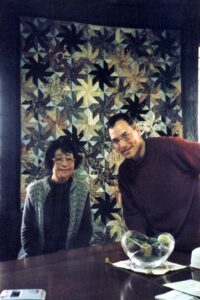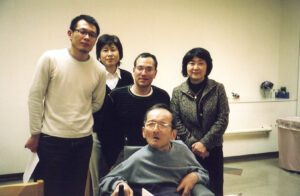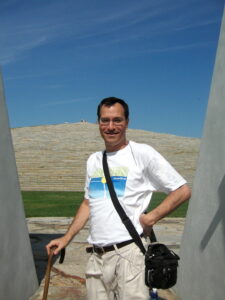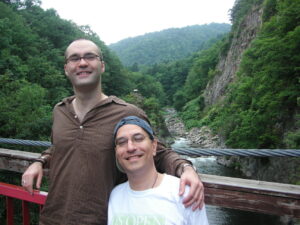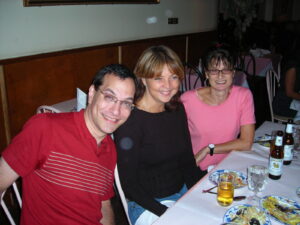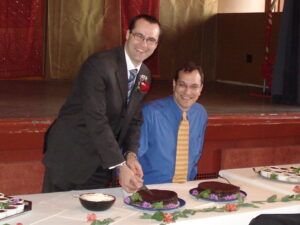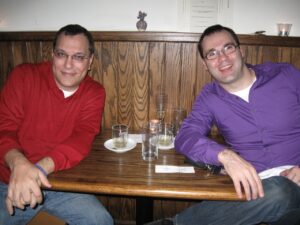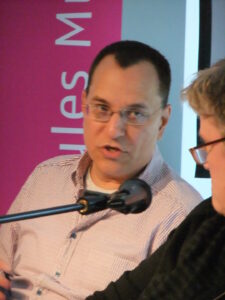Kenny Fries was born on September 22, 1960, to a lower middle class Jewish household in Brooklyn. Kenny was born with fibular hemimelia, a congenital disability where he had no bones in his legs. Starting when he was six months old, he underwent ten years of operations, and the tremendous tension in the household about his medical needs sometimes erupted into physical abuse from his father and brother. Kenny’s mother pushed for him to matriculate into the Brooklyn public school system, which became the first of Kenny’s many experiences as the first visibly disabled person in a space that was not designed for him.
Kenny had sexual experiences with his male friends all his life, but it wasn’t until he spent his junior year of college abroad in the UK that he had his first “love experience.” When he then came out to his parents, his mother replied, “Well, what do you want me to do? Jump out a window?” Years later, when Kenny was living in a roach-infested New York apartment, his mother’s indifference had slightly improved to “I don’t care who you’re sleeping with, but I don’t want you sleeping with roaches.”
As he finished graduate school studying playwriting at Columbia, Kenny began publishing work about his experiences as a gay and disabled Jewish person. In 1994, he was invited by Vicki Lewis to attend the Contemporary Chautauqua on Disability and Performance in Los Angeles, where he met other disabled writers and became inspired to edit the anthology Staring Back: The Disability Experience from the Inside Out. The anthology provided the platform for lesbian writer Adrienne Rich to come out as a disabled person with rheumatoid arthritis, leading to a lifelong correspondence and collaboration between Adrienne and Kenny until Adrienne’s death in 2012.
Determined to go abroad, Kenny pursued and received the Japan-US Friendship Commission Creative Artists Fellowship to study disability and Japanese culture. He became fascinated by the theme of constant change in Japanese gardens, relating that theme to disability, and interviewed disabled Hibakusha and Hiroshima survivors.
After returning to the US, he was preparing to leave for his second trip to Japan when he was hospitalized for blood clots in his lungs, subsequently testing positive for HIV. He decided to go anyway and start his medications in Japan. On the trip, he met and fell in love with Mike, who is now his husband.
Following Japan, Kenny traveled to Germany on a book research grant to study disabled people growing up in East Germany. He quickly realized that he needed to trace the history back to Nazi rule and the mass killings of disabled people. Before he knew it, he had spent nearly a decade in Germany, and still lives in Berlin today. Kenny’s research has culminated in his current book, Stumbling Over History: Disability in the Holocaust. He advocates for disability representation in queer museum exhibits in Germany, and leads “Disability Futures in the Arts,” an intergenerational essay project featuring disabled writers and artists under the age of forty. Kenny explains that “my body is my activism,” challenging gay, disability, and Jewish stereotypes across the different spaces he inhabits.

